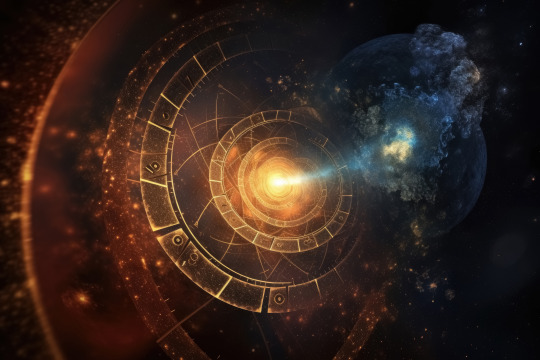#MagicInLiterature
Explore tagged Tumblr posts
Text
Mastering Story Physics: Crafting Believable Magical Systems for Immersive World-Building

Photo: Standard License - Adobe Stock
Have you ever read a book with a magical system so captivating you almost believe it's real? That's where story physics comes into play. It's like everyday physics, but instead of dealing with gravity or quantum mechanics, the rules are for our fictional universes. The more consistent and logical the rules are, the easier it is for readers to suspend disbelief and get lost in a story. If you're dreaming up a world of your own, here's a quick guide on getting everything to line up smoothly for maximum reader immersion.
Begin with the Basics
Foundation: Start by understanding the natural world's physics. It helps to know the rules before you bend or break them.
Consistency: Decide on the rules of your universe and stick to them. If magic drains energy in chapter one, it can't be consequence-free in chapter five.
Limitations: Every system, magical or not, should have its limits. This can create tension, obstacles, and more intricate plots.
A Dash of Reality:
Relatability: Even if your world is filled with flying pigs, there's gotta be something relatable. Maybe those pigs need sleep, or they're terrified of storms. Ground some aspects in reality.
Cause and Effect: If a character uses a spell, there should be a consequence. It can be as simple as being tired or as complex as altering the fabric of the universe.
Complexity and Depth:
Layers: Think of your magical system as an onion Peel back layers to reveal deeper secrets or complexities as the story progresses.
Evolution: Allow your system to grow and change. Just like technology advances, so can magical methods or tools.
Character Interaction:
Practicality: If magic or advanced technology exists, characters should use it daily, not just in dire situations.
Learning Curve: Characters shouldn't master the system overnight. Watching them struggle, learn, and adapt can be super engaging.
Stakes and Balance:
Consequences: Every action should have an equal and opposite reaction. If someone's saving the world with their powers, what are they sacrificing?
Power Checks: Ensure there's something to check or counteract powerful entities. Without a good reason, no one likes an invincible hero (or villain).
-Indigo
#StoryPhysics#WorldBuilding#MagicalSystems#WritingTips#FantasyWriting#StoryTelling#FictionWriting#SuspensionOfDisbelief#WritingCraft#WritingCommunity#MagicInLiterature#StorytellingMagic#CharacterDevelopment#FantasyWorlds#CreatingMagic#WriteWithUs#FantasyRules#MagicAndReality#StorytellingBasics#WritersOnTumblr#FictionalUniverses#LiteraryCraft#BuildYourWorld#Magic101#RulesOfMagic#WritingInspiration#CraftingNarratives#MagicInWriting#WritersToolbox#ImmersiveWriting
134 notes
·
View notes
Photo

Visit www.thekmbradshaw.com to read an excerpt from my adult fantasy WIP!
#writing#amwriting#fantasy#adultfantasy#author#writerslife#highfantasy#writerscommunity#wip#writer#magicinliterature
1 note
·
View note
Text
Hi! I want to talk about dark magic.
What do you usually imagine when you hear about dark magic? Spells and rituals that destroy the world or kill someone? Or maybe you think of a mage from some book or movie, like Voldemort or Sauron? In principle, both are correct, but I want to share my point of view (I know I'm not the first to talk about this).
So, what is dark magic, and why is it called that? Everyone's definition is different, but the common part is that it is used with evil intentions, unlike light magic. It is considered dark for several reasons:
Danger and unpredictability:
Magic associated with causing harm often carries risks and can have unpredictable consequences. People fear what they cannot control.
Ethical and moral norms:
In most cultures, causing harm is considered immoral. Magic associated with these actions automatically falls into the category of dark.
Historical cases of abuse:
In history, there have been mages and sorcerers who used their power for evil purposes. These examples have contributed to the formation of stereotypes about dark magic.
In my opinion, magic is not divided into "light" and "dark"; it is absolutely neutral. This division is only necessary to distinguish between positive and negative characters. You know the trope: "Dark" mage = evil mage and "Light" mage = good mage. In "Harry Potter," there was even a house from which dark wizards often came, characterized by cunning and resourcefulness.
As I mentioned, magic is neutral and is merely a tool for achieving a goal. It acquires moral significance depending on how it is used. For example, fire can warm and cook food, but it can also destroy and kill.
Thus, dark magic is not inherently evil but simply magic used for evil purposes. It all depends on the intentions and actions of the mage.
#DarkMagic#MagicInLiterature#FantasyTropes#good vs evil#FantasyMagic#fantasy magic#MagicStereotypes#my opinion#thinking aloud
5 notes
·
View notes